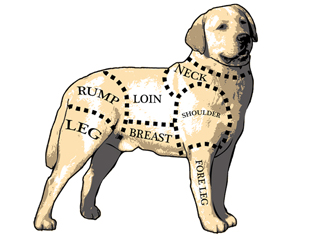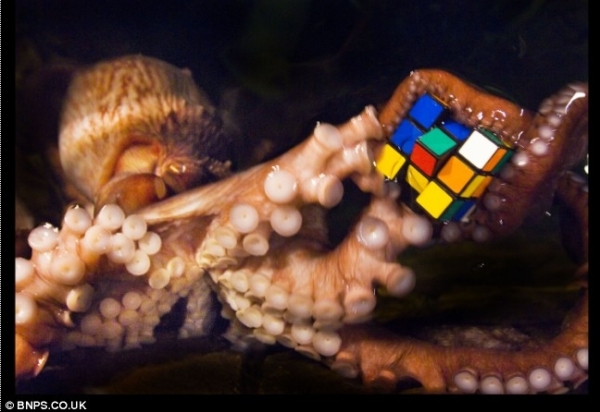Meat Eating Insight
Show Introduction
I don’t watch many shows on TV these days. Mainly for time constrains but also due to lack of content. There is a show I do really like and try to watch as often as possible. I have mentioned this show in a past post found HERE.
The show is called Insight and is shown on the SBS network. Its hosted by Jenny Brockie who does an excellent job in moderating and steering the show each week. The general idea of the show is to present a topic of discussion for the audience and explore the swath of views and opinions. The audience podium usually contains a number of mid-high profile figures with an association to the topic some how, whether that be professionals, philosophers or practising individuals.
Eating Meat

The show that aired on August 9th 2011 was titled “Eating Meat”. The discussion is centred, as the title suggests, around humans and the topic of eating meat , or non at all.
Dog eating
The first topic that Jenny raised was what meats do you and would you eat?
JENNY BROCKIE: Kelly, you grew up in Vietnam. Have you eaten dog?
KELLY LIEU: I came to Australia when I was six. I went back when I was ten. My Mum had told me in the morning, “Have some of this stew. It’s pork.” So I had it thinking it was pork. Later on in the afternoon, my cousin asked me, “How was that dog?”
Having two dogs myself, the question of whether I would consider dog on the menu has actually crossed my mind before. I would never be able to eat my own pets in any sane state of mind. The main reason being is that they are my pets. As a person forms a stronger bond with the animal, the creature moves inwards through imagined concentric circles of relationships, nearing immediate family and the like.
In principle I see dog eating on par with eating cows, sheep & pigs; given that all the variables are the same. The variables are NOT the same in Australia. That is because our culture and society treats dogs mainly as pets. Anecdotally I have heard stories of people who own dogs and see them as nothing more than property, whether that would be to guard their premises, or to heard animals. One such anecdotal case was of a neighbour and his half dog/wolf that lived next to my grandmother’s farm, who casually told my grandmother one day; “he is getting old, I think its time to make a hat from his fur”. They weren’t kidding either, that is what happened.
The take away from the topic is to ask why you eat certain meats and not others. One of the main reasons is cultural, but there may be others such as ethical, which I will address later as well.
If I am able to disassociate myself from the relationship with the animal, the meat then becomes easier to consume.
However here was this interesting quote that struck me:
DR SIMONE DENNIS: …. But it’s interesting to talk about the duality that you’re saying about dogs in Vietnam and how you might, on the one hand, have a pet dog, and might also eat dog. This is a similar kind of situation in the west. We’re not immune from that, if you look at the rat, we keep pet rats at the same minute we exterminate them in their millions. It’s not something we’re not guilty of ourselves or that we don’t practice.
Most of us don’t eat rats, but the Doctor does point out an interesting observation. I would argue that people on the farm also feel that some animals such as cows are a form of pets. Perhaps my personal explanation of how people in Vietnam and on farms can hold dogs/cows both as pets and meat is that, its rare that the animals are treated as household companions which then get killed and eaten. Some are pets and remain pets while others are raised as future meat and don’t form any connection to the animal.
Ethical view on eating animals
Jenny asks an ethics professor a question based around the ethics of eating meat. He makes an argument for the consumption of animals based on ‘sentience’
The quote:
JENNY BROCKIE: What do you mean by that, so people are clear on sentience is.
PROFESSOR GLENN ALBRECHT: An animal that has a central nervous system and, I guess, a brain and a capacity to experience pleasure and or pain. That would be a measure of sentience – an animal having those kinds of characteristics. That’s different from intrinsic value, which would be probably all life and it doesn’t matter whether they’ve got a backbone or a central nervous system or not, or a brain.
JENNY BROCKIE: So you’re saying we shouldn’t eat things with a central nervous system? Ethically?
PROFESSOR GLENN ALBRECHT: I think we have to have a lot more care and respect for animals that fall into that category. But that doesn’t mean that it makes it acceptable or unacceptable. There are other reasons why we’d make judgements about the ethics of eating anything, and they, for me, are substantially connected to environmental considerations about what the impact of our eating is having on the broad or wider environment within which we live.
I think the professor makes a good observation about sentience of animals. Most people whether knowingly or not treat animals based on their mental abilities. It’s easy to crush a cockroach and not blink, however if someone stomped a cat to death it will horrify us and may make the nightly news. The ability of the animal to experience pain and show emotions is one way humans judge the value of animals and decide what they will and won’t eat. A lot of vegetarians stop eating farmed meat due to the cruelty of the practises and the suffering that the animals experience. Yet some continue to eat seafood as the following exchange shows:
JENNY BROCKIE: Why do you eat fish? I’m interested in why – I hear this a lot from people who say, “I’m vegetarian, but I eat fish.” Why are fish OK to eat?
SARAH NICHOLSON: My main concern was with the suffering of animals and the sentience. I felt that fish had a lower level of sentience than other larger animals – Potentially. It’s a bit of a line in the sand. I recognise that. I also feel like fish have positive health benifits, and it makes it easier eating out and going to other people’s houses.
But low level of sentience of fish and especially animals like squid and octopi is debatable and there is little regulations on how fish are killed. I would argue that basing ones decision on eating ethically due to sentience alone is not enough, as the professor said taking into account the way an animal is treated, the environmental impact of the animal and the preservation of the animals for the future should all form the basis of how people should consume meat. Thus culturally I don’t see eating whale meat as wrong, however having a disregard for the sustainability of the species and the time it takes the harpooned whale to die is important.
So is it ethical to eat animals if they are treated with respect, are provided a comfortable life and killed painlessly? I would argue yes and in a perfect world I would like to see the meat industry move away from the more controversial practises. Am I following my own ethical reasoning right now? Probably not. I try to shield myself from seeing the process of how an animal makes its way from a farm to my plate, which helps me deal with the contradiction, or as some may say cognitive dissonance of eating something that I would see as unethically produced.
Why do I think it’s unethical to eat meat from animals that experienced poor conditions and perhaps were killed in a slow and painful way? It comes down to the well-being of sentient creatures. If an animal has a nerves system and produces emotions such as fear, happiness, discomfort, pain etc then I would argue its ethical for people to ensure that the wellbeing of the animals should be maximised when possible.
I’ve read into stunning of animals and it seems to be the most effective way of not causing suffering to animals when being killed. Compared to most places in the world it appears to me that Australia has a relatively high standard of care for the well fair of animals. Perhaps further phasing out of more poor methods will translate into a more ethical meat eating country.
We’re kinda desensitized to the whole process of killing an animal. We just get it packaged in Woolworths after the whole killing, skinning and chopping up process is done. My grandfather was a farmer and he is kinda like that neighbor you mentioned. He’s had to kill many an animal and I don’t think he can view animals as I can because it would be traumatic to do so.
In the end, my conscience tells me that eating animals is “morally” wrong but my tastebuds say they’re delicious and to ignore anything that tries to sway me. Unfortunately, I obey my taste buds more than my conscience. I’m kinda torn in this way. Now that I own a cat, I’m kinda becoming less hardened at eating them but I’ll see how that progresses.
Yep very true. Most city people are removed from the process. Whether that’s good or bad is debatable.